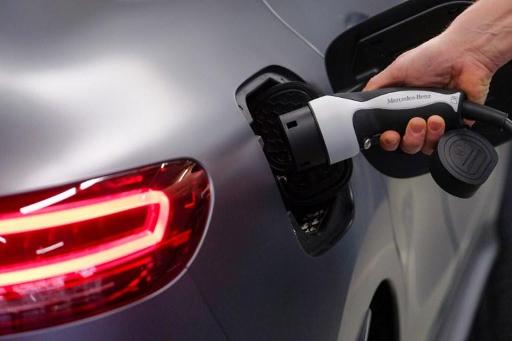Companies are largely driving sales of electric vehicles (EVs) in Belgium, as the private market is "almost stagnant" and people are choosing to hold onto their older cars for longer.
Belgians are overwhelmingly choosing to keep their current car for longer, despite strict environmental standards, low-emission zones and tax incentives or bonuses to take old cars off the road and incentivise the purchase of EVs, according to a study commissioned by car maintenance and repair specialist Auto5.
Almost two in three Belgian households own a car, or more than six million vehicles for around four million drivers. On average, a Belgian household owns 1.4 cars, and this number is continuing to grow.
Previous figures from auto sector federation Traxio highlighted that the number of new electric cars registered in the first nine months of 2024 already surpassed the total for the entire year of 2023 in Belgium.
More than 96,000 new electric vehicles were registered in the first nine months of the year, with nearly 90% registered by businesses and leasing companies.
Auto5 also noted that the rollout of electric vehicles in Belgium is being driven by company car sales. The study shows that only 10,000 EVs were sold to private individuals in the first half of the year.
Auto5 said that many Belgians are hesitant to make the switch to an electric car. This is mainly due to the significant investment and long-term uncertainties, such as the development of charging infrastructure.
Belgians keep cars for longer
As a result, Belgians are keeping their old cars for longer, even if this involves additional maintenance and repair costs.
"The electrification of the vehicle fleet is progressing mainly on the company car side. Many individuals are postponing the purchase of a new electric or hybrid vehicle, especially since purchase incentives have ended in the meantime," said Auto5 spokesperson Olivier Renard.
"This could lead to a temporary increase in sales, but it will not slow down the aging of our vehicle fleet. The recent elimination of tax incentives has probably led to an increase in sales, but this remains temporary and will not slow down the aging of our vehicle fleet," he added.
The Belgian car fleet continues to age, with an average age now of around ten years. The average vehicle has 120,000 kilometres on the clock, which translates into higher maintenance and repair costs.
Increased demand for maintenance
Auto5 said that the technology of cars, whether thermal or electric, is evolving rapidly, making maintenance and repairs more complex. This combination of an aging fleet and technological advances "significantly increases the demand for maintenance and repairs."
The company said that many garages are facing a shortage of qualified technicians.
"To maintain all these systems and technologies, our technicians must constantly train. This represents a major challenge for garages such as Auto5, which are therefore investing more in the recruitment, training and specialisation of their technical staff," said Renard.
The survey, conducted by GiPA in collaboration with Auto5, polled 1,073 Belgian drivers in February 2024.

